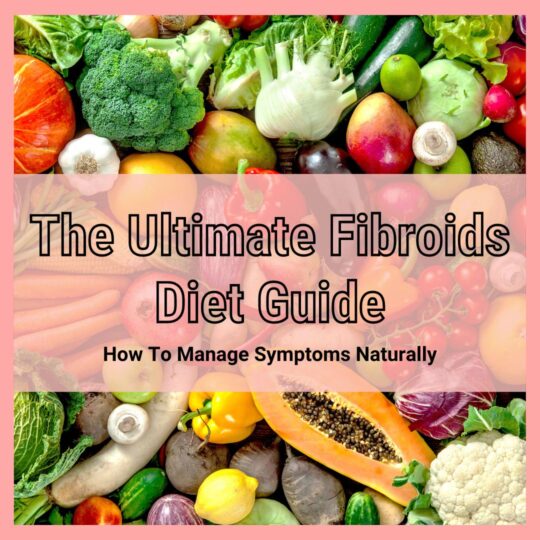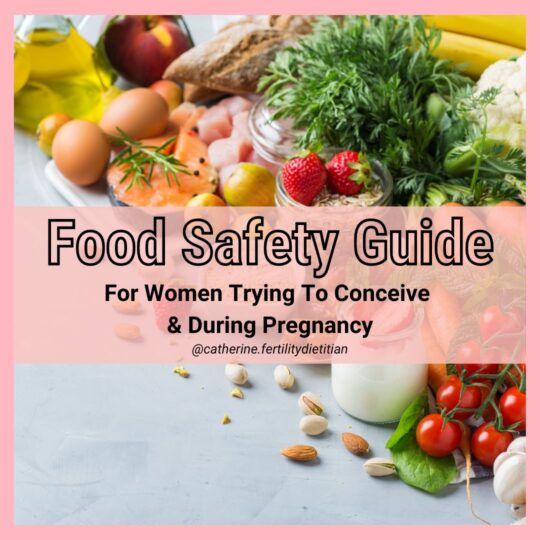Do You Need To Lose Weight To Get Pregnant?
3 Practical Steps to Help Losing Weight
This blog post will explain why you need to lose weight to get pregnant. Research shows that your chance of falling pregnant decreases by 4 per cent for every 1kg/m² over a Body Mass Index (BMI) of 29.
If your BMI is above 45, you are 60% less likely to become pregnant. The same goes for if you are overweight and undergo IVF, the risk of miscarriages increases. To work out your own BMI, you can use this BMI calculator.
However, BMI may not accurately represent weight at the individual level, and someone with a healthy BMI can also have a high percentage of body fat. Hence, I often get my clients to have their body composition measured during the initial consultation to get a closer look at their body fat percentage, visceral fat and muscle mass level.
If body fat is too high, we can then discuss reducing this body fat with a targeted weight loss plan. It also allows us to track any changes in muscle mass. This helps us know if you’re losing weight and mainly burning body fat, not just weight from muscle and water mass, as these have nothing to do with improving your fertility.
Why Can Too Much Body Fat Reduce Your Fertility?
Excess body fat is one of the most common causes of ovulatory dysfunction. If you’re overweight (defined by a BMI over 25), your risk of inability to conceive, miscarriage, implantation issues, poor egg quality and sperm quality issues are increased. What you eat and the quality of your diet, supplementation, stress level, as well as your exposure to environmental toxins like Bisphenol A (BPA) can all affect your eggs quality and overall reproductive health. Hence, it is ideal for losing weight to get pregnant.
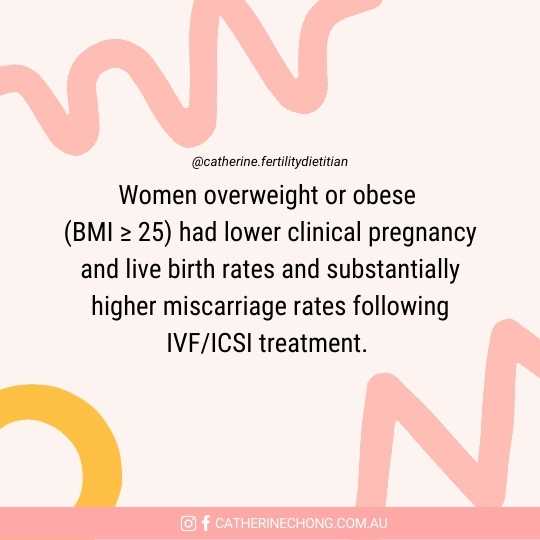
1. Overweight Can Diminish The Quality Of Your Eggs
Studies show that overweight women have a higher risk of inflammation, affecting the potential development of eggs and are up to three times more likely to experience irregular periods and less regular ovulation, making it much more difficult to conceive.
It is recommended that women achieve a BMI <29 before the commencement of Assisted Reproductive Technology (ART).
2. Overweight Can Stop Ovulation
Five essential reproductive hormones regulate your monthly menstrual cycle and the ability to ovulate. They are:
- Estrogen
- Luteinizing hormone (LH)
- Follicle-stimulating hormone (FSH)
- Gonadotropin-releasing hormone (GnRH)
- Progesterone
During menstruation, estrogen levels drop to their lowest. This signals the brain to produce FSH to begin maturing more eggs in preparation for ovulation. Body fat cells often have higher estrogen levels.
Suppose if you’re carrying excess body fat levels. While your hormone levels are out-of-balance (e.g. estrogen levels are chronically higher), your body doesn’t signal to release the eggs, affecting your ability to ovulate and conceive. About 30% of infertility can be caused by estrogen imbalance.
3. Weight Can Impact On Sperm Health
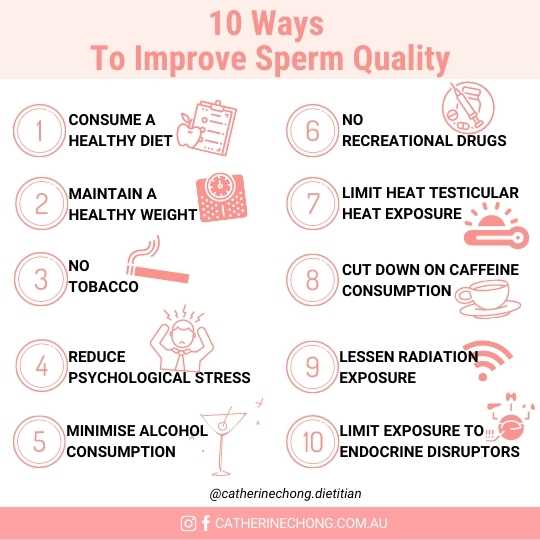
If your partner carries excess weight, this can negatively affect the quality and health of their sperm and increase sperm DNA damage. Research suggests that a man who is just 10 kg overweight has a 10% reduction in fertility. Excess weight can decrease sperm count, affecting the quality of sperm and decreasing sex drive.
4. Being Underweight Can Reduce Fertility
Being underweight (BMI <20) can also decrease your fertility. A low body fat percentage can affect fertility hormones’ production, making ovulation more challenging.
I often see female athletes or someone who has previously suffered from eating disorders with a low level of body fat struggle to get pregnant. Trying to conceive can be highly challenging for this group of women, as the thought of putting on more body fat can be confronting, and it can take as long as 12 months to restore menstruation and ovulation.
In the meantime…
Let’s now go through a few simple and practical tips to help you lose weight to get pregnant.
1. Start Following A Mediterranean Diet
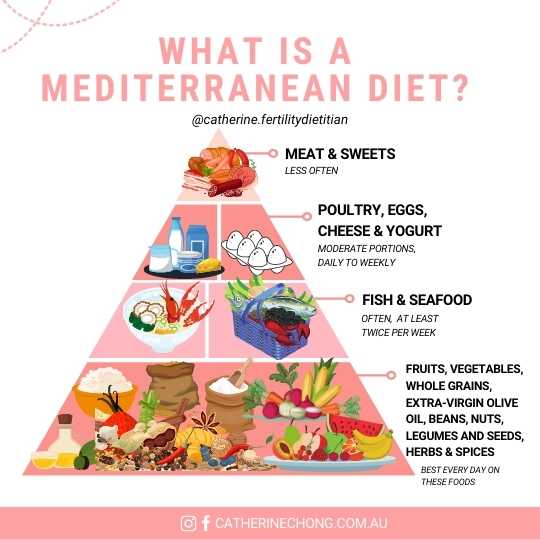
A Mediterranean diet is one of the healthiest and most extensively researched fertility eating patterns. It promotes increased consumption of fruits and vegetables, legumes, whole grains and fish/seafood whilst reducing red meat and processed foods. You can find more information on the benefits of the Mediterranean diet in another blog, 3 Surprising Diet Tips To Increase Fertility.
2. Avoid Foods That Make You Less Fertile
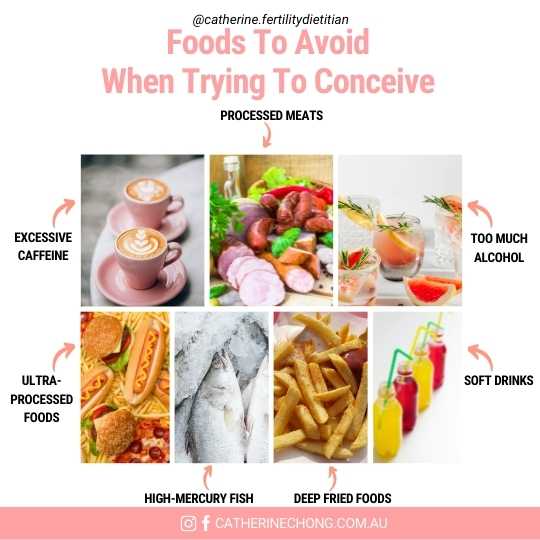
Whilst following a fertility diet such as the Mediterranean diet can have many health benefits. Several foods can have undesirable effects on your health, and many foods that can negatively affect fertility have the same impact on weight. These include foods high in saturated fats, caffeine, sugar, ultra-processed foods and alcohol.
3. Maintaining A Healthy Weight Before Conception
Consider seeing a certified fertility dietitian for a “preconception nutrition” consultation to perform a body composition analysis to see where your body fat percentage are at and discuss ways to optimise your chances of a successful pregnancy.
Need more help? I’ve worked with many women to increase their fertility to get pregnant sooner, and nourish their bodies for pregnancy.
I can help you too by creating a personalised nutrition plan tailored to your health conditions and nutritional needs.
With all my love



